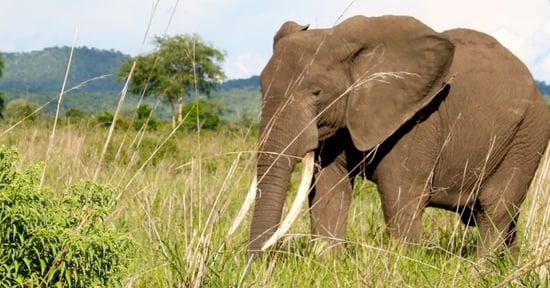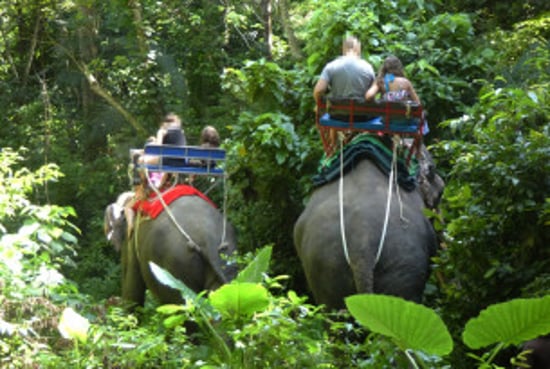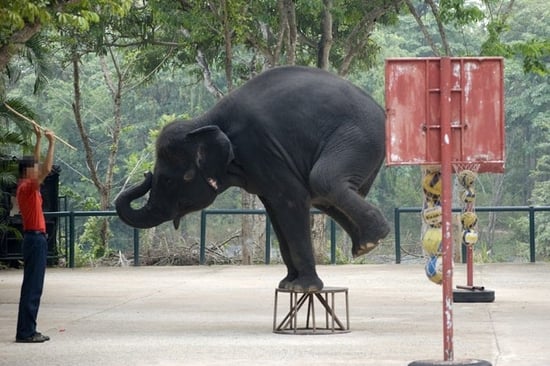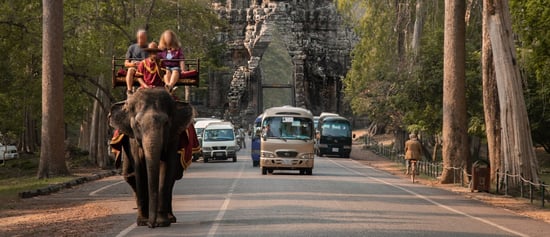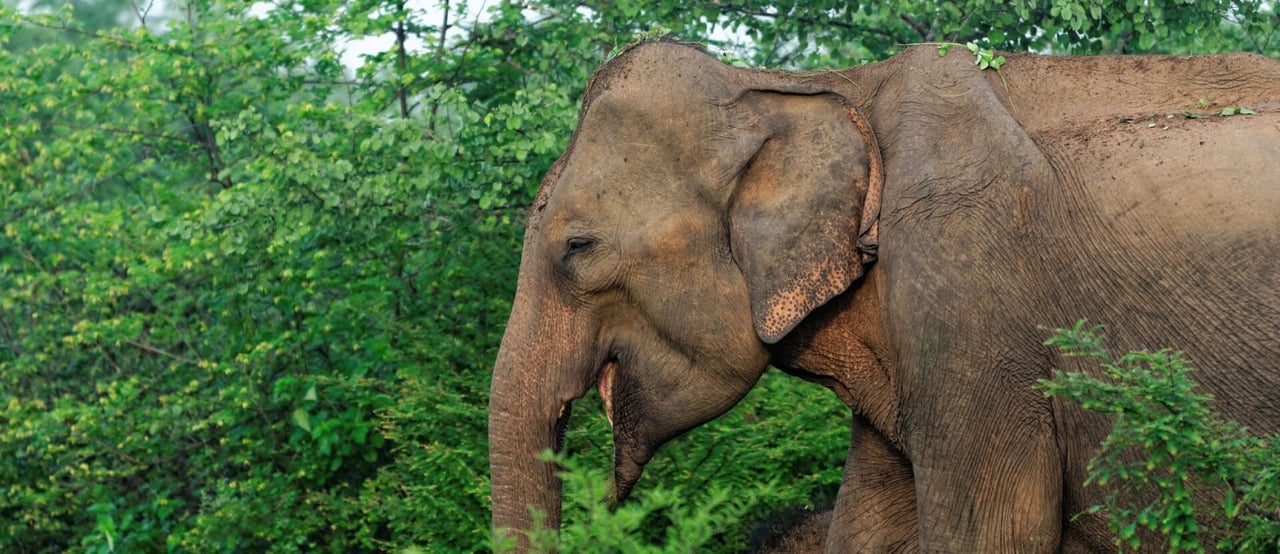
Elephant Facts
Common name: Elephant
Scientific name: Elephantidae
Distribution: Asia and Africa
Elephants can eat about 150 kg to 300 kg of food each day. Read on to learn more interesting facts about these animals and how we can protect them.
Elephants are the largest living land-based mammal and can weigh between 3,000 to 5,000 kg with a body length of over 6 metres. They have distinctive long noses known as a trunk and large ears.
There are three commonly recognized species of elephants: the Asian Elephant, the African Savannah elephant and the African Forest elephant. Within Asian elephants there three sub-species – Indian elephants, Ceylon elephants and Sumatran elephants.
There are approximately 38,000 – 52,000 Asian elephants in the wild with the Africa elephant population estimated to be at least 472,269 individuals, including 58% in Southern Africa.
Elephants are some of the most socially-developed mammals in the world and arrange themselves into complex social structures based on mother- calf units. They can live up to 70 years in the wild, however their lifespan in captivity is generally shorter.
Elephants are highly intelligent and have substantial cognitive ability. They can develop post-traumatic stress disorders, similar to those seen in humans, when held in captivity and faced with traumatic experiences such as separation from their mothers or cruel training.
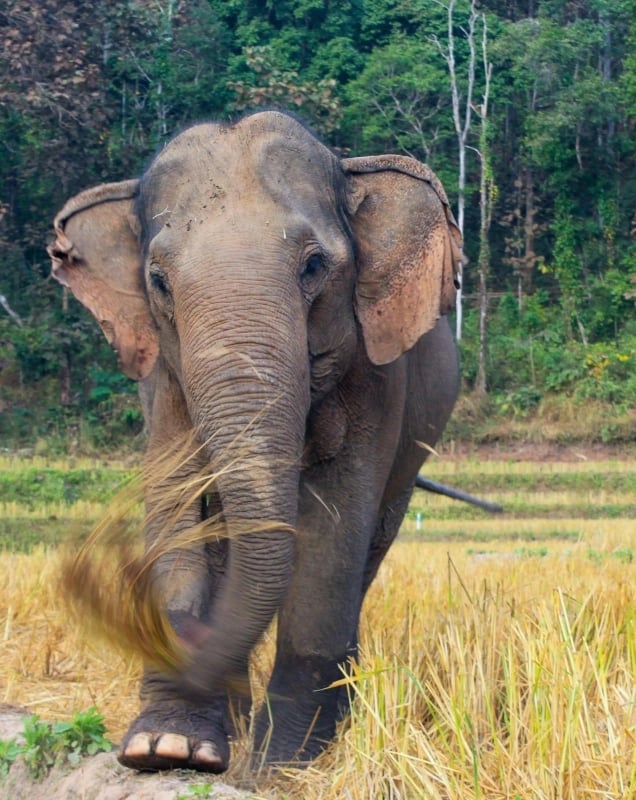
Elephants spend around 12–18 hours per day feeding on grasses and browsing on tree bark, roots, leaves and small stems, consuming between 150 and 300 kg of food per day.
They like to, and need to, bathe in water each day and commonly swim, mud and dust bathe, rub on trees, and explore their environment using their trunk.
Asian and African elephants look different in several ways. Asian elephants are smaller and have a smaller ear shape. Only some male Asian elephants have tusks and even fewer female Asian elephants are seen with tusks. In contrast both male and female African elephants commonly grow tusks.
African elephant
Asian elephant
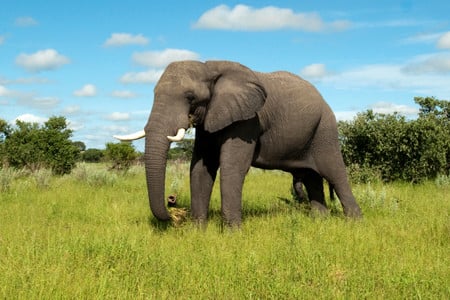
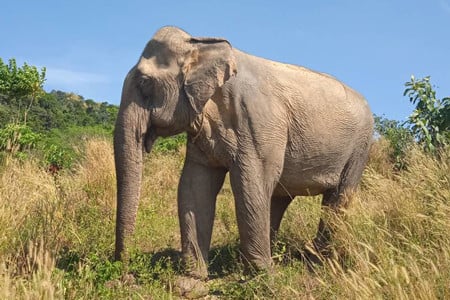
The problem with elephants in entertainment venues: the “crushing reality”
Around the world, thousands of elephants are cruelly trained and abused for the entertainment of tourists. Many tourists ride elephants or visit elephant attractions because they love these beautiful animals. The awful truth behind the treatment of elephants used for rides is hidden from sight.
No elephant can be trained humanely to perform circus tricks, give saddled rides or cope with the stress of strangers touching them day after day. They are wild animals with instincts made for the wild and cannot adapt to the cruel training, human interaction and incarceration they suffer in entertainment venues.
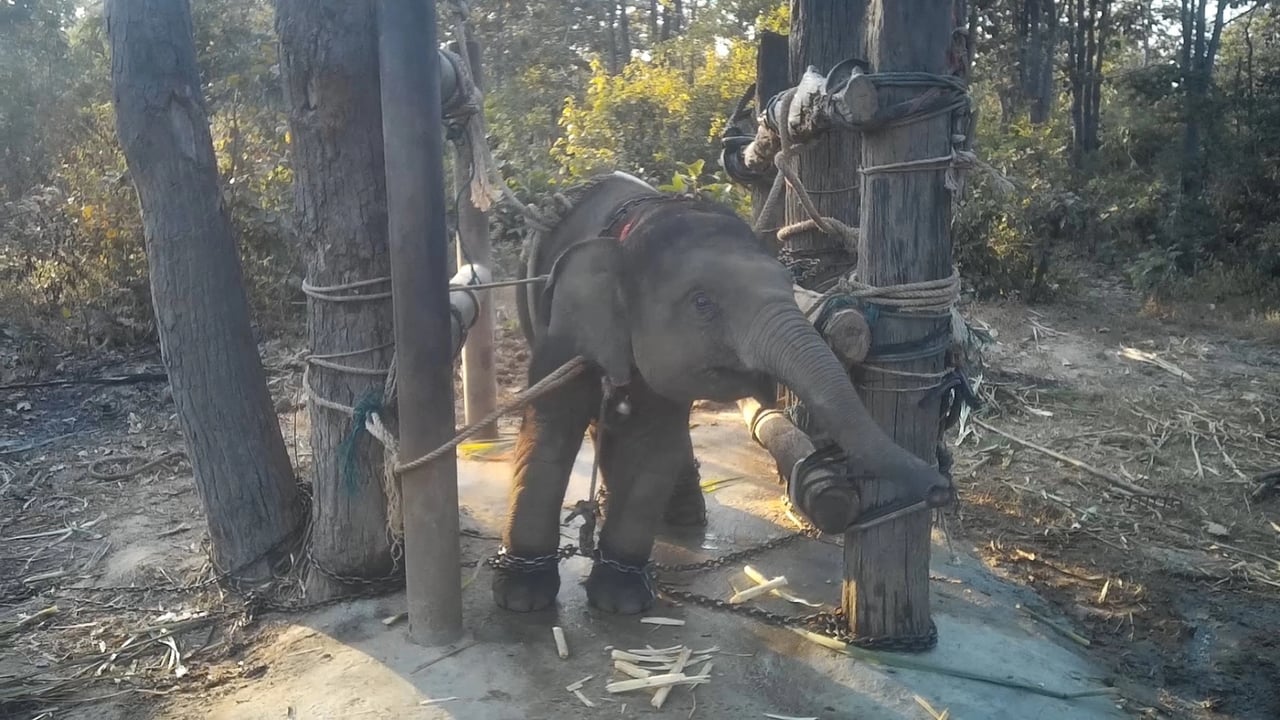
Every elephant used for tourism is subjected to a brutal training process known as “the crush”. To break their spirit, they are torn from their mothers, isolated, chained, starved and beaten until they are submissive enough for tourists. This cruel practice can go on for several days or even weeks, all when they are just a few years old.
And the cruelty doesn’t stop there. Elephants are controlled with fear and pain using sharp bull hooks so they'll perform in shows, take people for rides on their backs, or tolerate unnatural interactions such as bathing, feeding or hugging.
Elephants also suffer daily through constant restraint on chains, lack of social interaction with other elephants, inadequate diet in captivity, and demanding or sometimes damaging activities that lead to stress and health problems.
Captivity can never meet an elephant's needs: a life in tourist entertainment is no life for a wild animal.

How we are helping elephants
We work with governments, travel companies and venue owners to make the industry elephant friendly. During the COVID-19 pandemic, we’ve also provided funding and support to high-welfare elephant venues and genuine sanctuaries to feed and care for elephants.
In Thailand, thanks to our supporters, we’ve helped two existing elephant camps, ChangChill and Following Giants, to transition to observation-only venues.
Instead of these venues offering elephant rides and shows, we encourage they change practices and transition to offer humane care to elephants with a high standard of elephant welfare.
To make captive elephants’ lives worth living in the future, we need to find a responsible and sustainable way to do so. So far, our approach includes the following:
- Raise tourists’ awareness to reduce the demand for the worst activities - elephant shows, rides and washing - to more elephant-friendly, observation-only options;
- Create higher welfare alternatives for captive elephants;
- Improve on-site welfare conditions for elephants not in elephant-friendly options;
- Recognise the livelihoods of elephant-dependent people, such as mahouts, throughout the phase-out period and enable livelihood alternatives;
- Make sure no more wild elephants are caught in the entertainment industry through efficient and enforced animal welfare laws and loophole-free registration process for captive elephants.
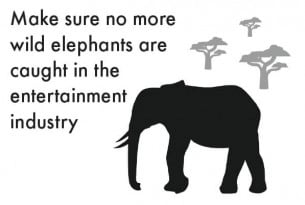
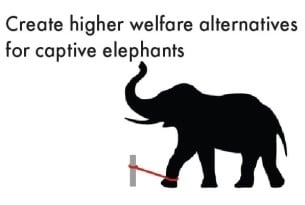
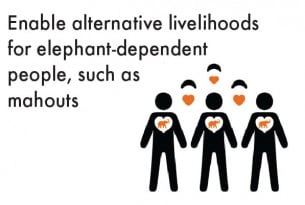
How you can help elephants
You can help elephants – and other wild animals – live better lives by making informed decisions when you travel. Pledge to only see elephants in high-welfare venues that don’t offer rides, shows and bathing experiences or, better still, see elephants in the wild where they belong.
Don't get taken for a ride
Pledge to stop the abuse suffered by elephants used for entertainment.
Donate to protect elephants
You can help give elephants the chance to live out their lives in a calm, peaceful environment.
Elephant rides
Today, more than 3,000 elephants are being used and abused to entertain tourists and visitors across Asia.
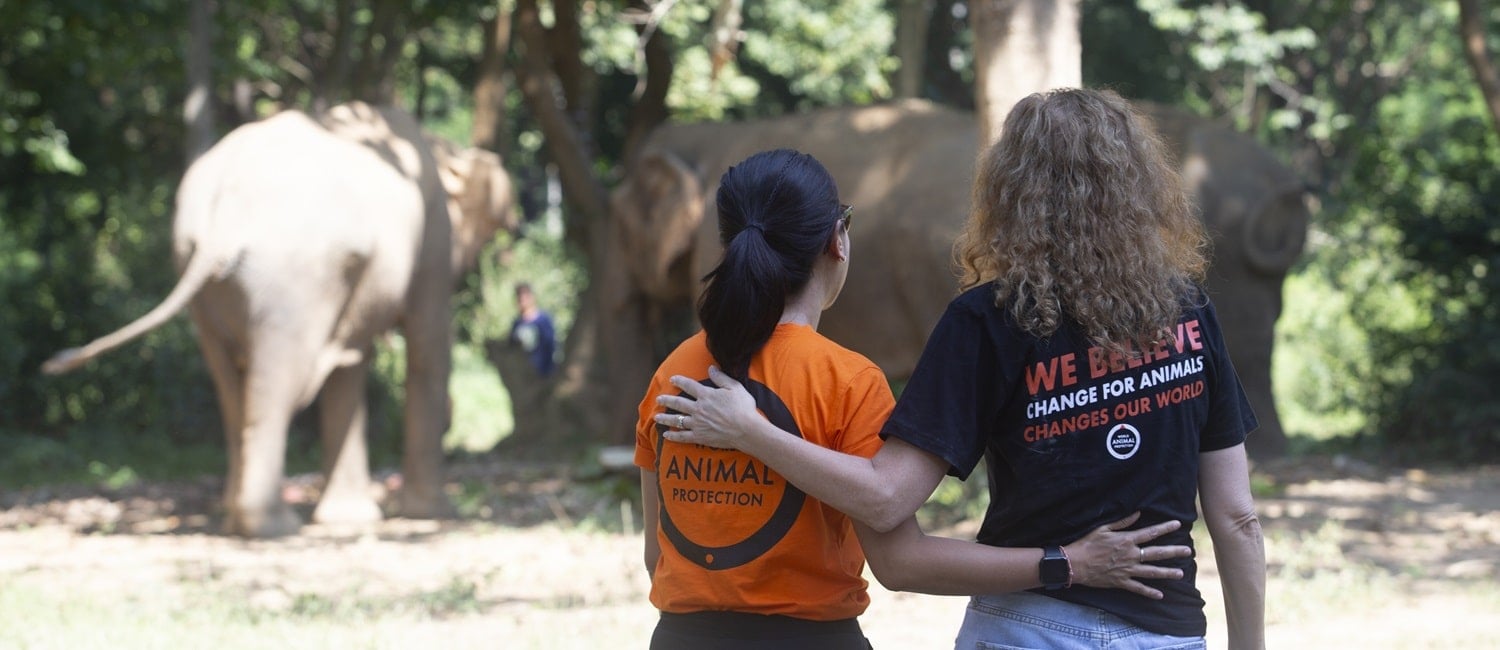
Keep up to date
Join thousands of animal lovers fighting to protect wildlife and give farmed animals good lives. Sign up now to receive emails with all the ways you can help.
Sign up